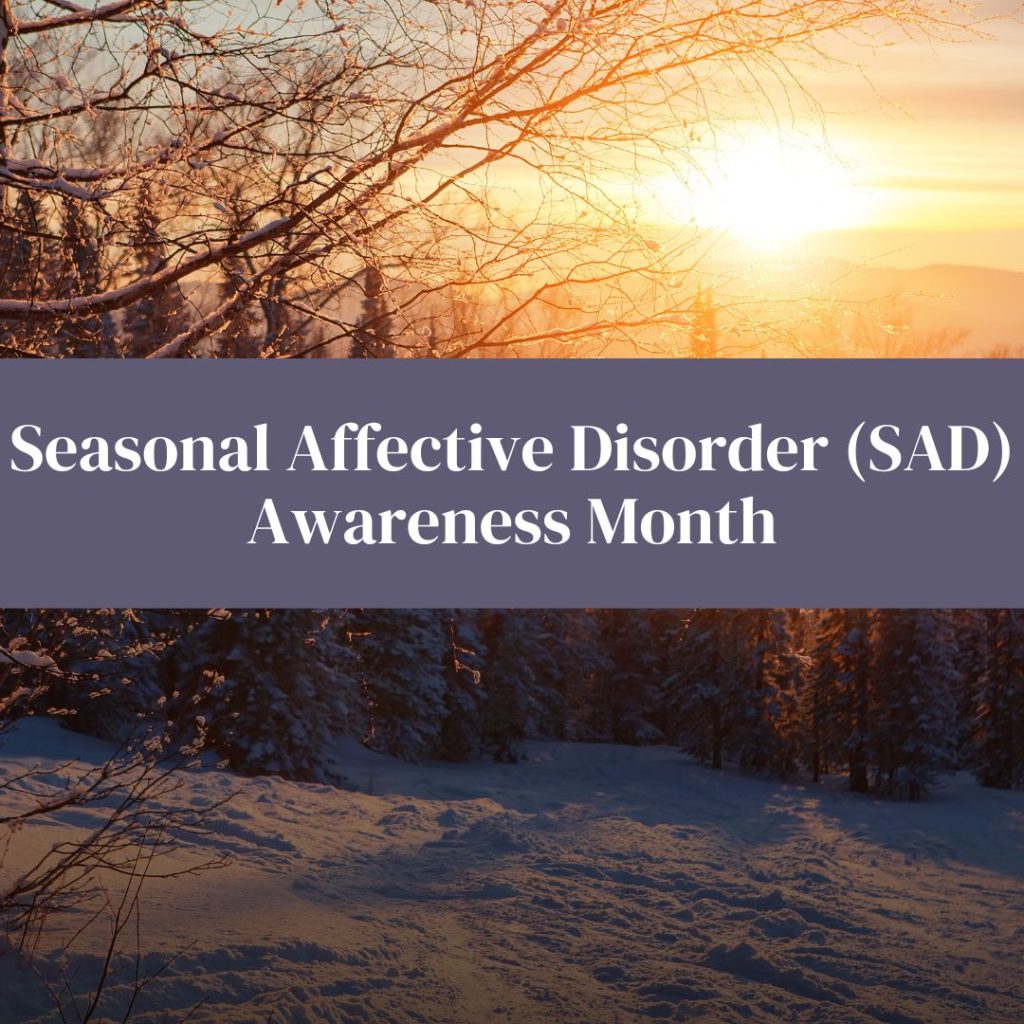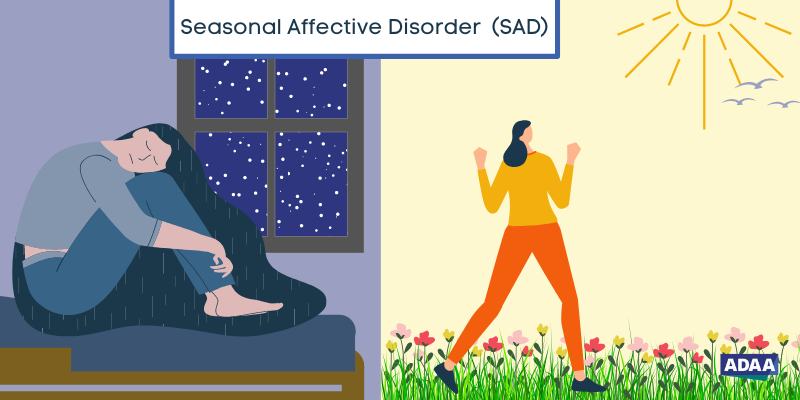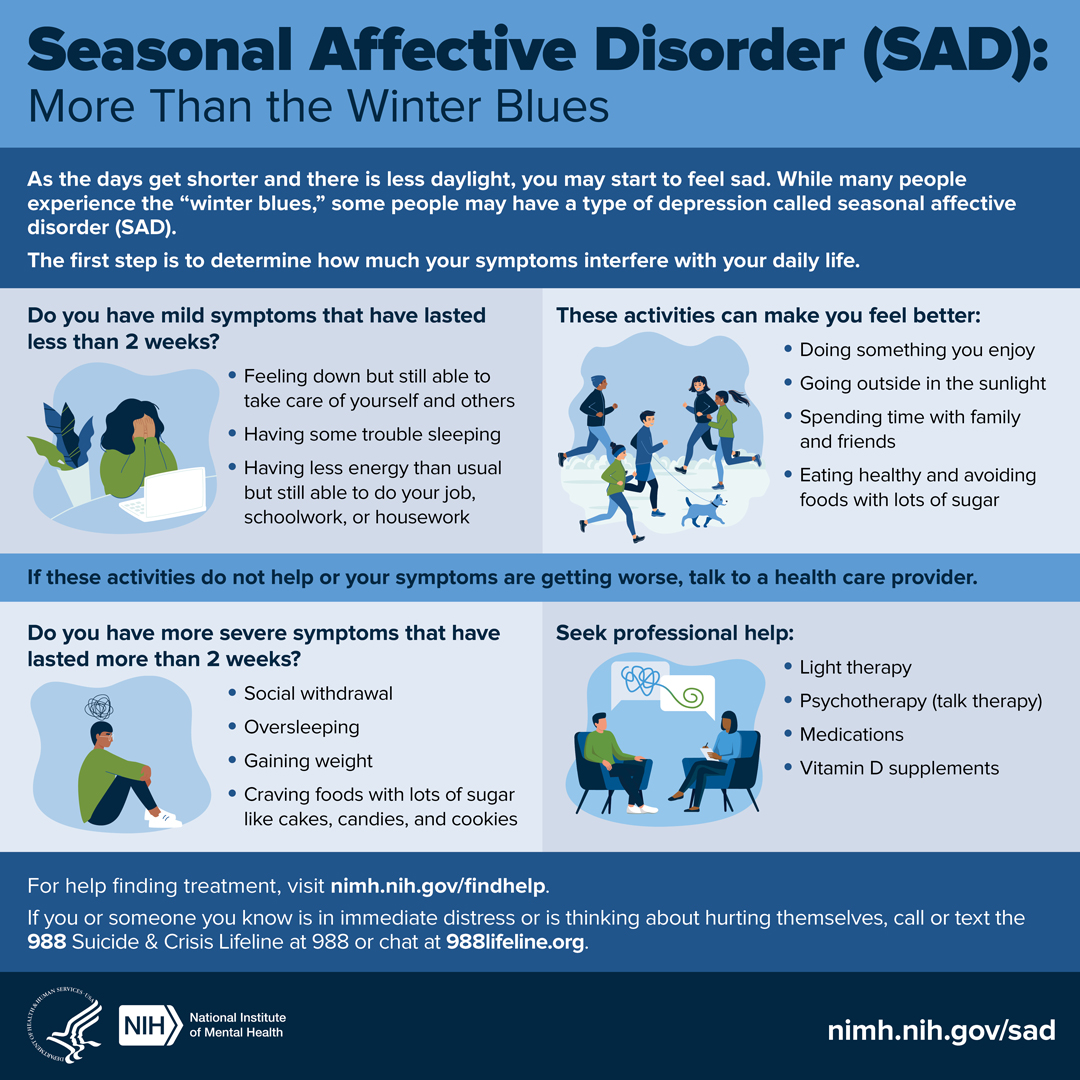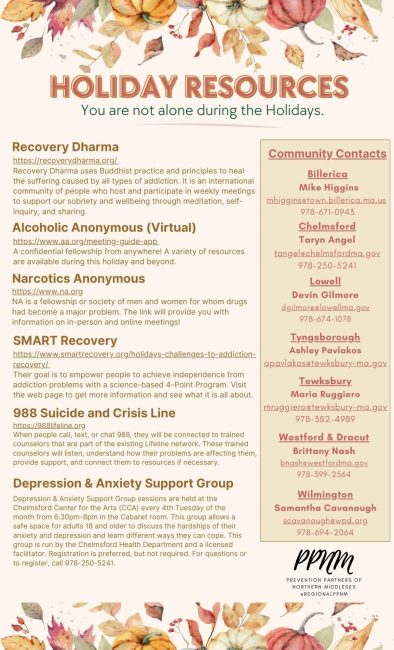December is Seasonal Affective Disorder (SAD) Awareness Month
in Local Events, Local News, Massachusetts News, National News

December is Seasonal Affective Disorder (SAD) Awareness Month
December is designated as Seasonal Affective Disorder Awareness Month because it coincides with the onset of winter, when many people start experiencing symptoms due to the reduced daylight. This timing helps raise awareness about SAD and encourages those affected to seek help and support during the challenging winter months. 
What is SAD?
Seasonal Affective Disorder (SAD) is a type of depression that occurs at specific times of the year, usually in the fall and winter when daylight hours are shorter. The symptoms of SAD can include feeling sad or down most of the day, losing interest in activities you once enjoyed, having low energy, experiencing changes in sleep patterns, and having difficulty concentrating.
The exact cause of SAD isn’t fully understood, but it’s believed to be related to reduced sunlight, which can disrupt your biological clock (circadian rhythm) and lead to a drop in serotonin and melatonin levels, affecting mood and sleep.
Prevalence of SAD
- SAD affects about 5% of adults in the U.S. and typically lasts around 40% of the year.
- The prevalence of SAD can vary based on factors like geographical latitude, age, and sex. It’s more common in higher latitudes where there are fewer daylight hours in the winter.
- SAD is more frequently diagnosed in women than in men

SAD Impact on Mental Health and Substance Use Challenges
Seasonal Affective Disorder (SAD) can significantly impact mental health and may lead to substance use challenges:
- Depressive Symptoms: SAD is characterized by symptoms such as persistent sadness, low energy, and changes in sleep and appetite. These symptoms can make daily functioning difficult and lead to feelings of hopelessness and helplessness.
- Self-Medication: To cope with these depressive symptoms, some individuals may turn to substances like alcohol or drugs as a form of self-medication. This can temporarily alleviate feelings of sadness or anxiety but often leads to a harmful cycle where substance use exacerbates depressive symptoms.
- Social Withdrawal: People with SAD often experience social withdrawal, feeling like they need to “hibernate”. This isolation can increase feelings of loneliness and depression, potentially leading to increased substance use as a coping mechanism.
- Impact on Daily Life: The combination of depressive symptoms and substance use can further impair daily functioning, leading to problems at work or school, strained relationships, and other mental health issues such as anxiety or eating disorders.
It’s important for individuals experiencing SAD to seek professional help. Treatments like light therapy, medication, and counseling can be effective in managing symptoms and reducing the risk of substance use challenges
Managing SAD
Managing Seasonal Affective Disorder (SAD) involves a combination of lifestyle changes, therapies, and sometimes medication. Here are some effective strategies:
- Light Therapy: Using a light therapy box that mimics natural sunlight can help regulate your mood and sleep patterns. It’s typically used for about 20-30 minutes each morning.
- Get Outside: Even on cloudy days, natural light can help. Try to spend time outside during daylight hours, especially in the morning.
- Exercise Regularly: Physical activity can boost your mood and energy levels. Aim for at least 30 minutes of exercise most days of the week.
- Maintain a Routine: Keeping a regular schedule for sleeping, eating, and activities can help stabilize your mood.
- Stay Connected: Social interactions can provide support and reduce feelings of isolation. Make plans with friends and family, or join a group or club.
- Healthy Diet: Eating a balanced diet rich in fruits, vegetables, and whole grains can improve your overall well-being.
- Counseling: Cognitive-Behavioral Therapy (CBT) can be particularly effective for SAD. It helps you identify and change negative thought patterns and behaviors.
- Medication: In some cases, antidepressants may be prescribed to help manage symptoms. It’s important to discuss this option with your healthcare provider.
- Vitamin D: Since reduced sunlight can lead to lower vitamin D levels, consider taking a supplement if recommended by your doctor.
Resources:

